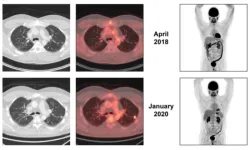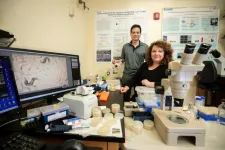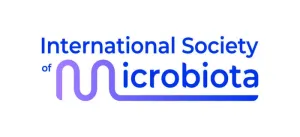(Press-News.org) Changes to DNA, known as mutations, can increase the likelihood of developing cancer. Specifically, people with mutations in their BRCA 1 and 2 genes are substantially more likely to develop hereditary breast and ovarian cancers. But how do people know if they have these mutations?
Genetic testing.
Genetic testing allows doctors to see these microscopic changes. Knowing these mutations exist, doctors will check for signs of breast and ovarian cancers more often.
Yet minorities, especially Black women, are less likely to participate in genetic testing. Even fewer engage in follow-up services, such as recommended interventions, which reduce risk.
To change that, a team of researchers at the Medical University of South Carolina led by Caitlin G. Allen, Ph.D., plans to teach community health workers (CHWs), who often reside in the communities they serve, how to share the importance of genetic screening with their peers. Allen is an assistant professor in the Department of Public Health Sciences at MUSC.
“Community health workers act as a bridge between the community and researchers and clinicians and can help to answer questions, provide support services and address a lot of social determinants of health issues,” said Allen, who has spent more than a decade working alongside and providing support for CHWs.
As a first step, the team worked with CHWs to learn about their needs and preferences for genetics training materials. They describe these efforts in a November article in the Journal of Cancer Education.
Knowing that some minority communities don’t trust researchers and medical staff, Allen and her team recruited CHWs because they are already trusted members of the community. The researchers found that CHWs were already very curious about genetics and eager to learn more.
“There was significant interest from CHWs to learn more about cancer and genetics, but the training to support them in building these competencies and genetic literacy didn’t exist,” explained Allen.
With funding from the American Cancer Society and MUSC Hollings Cancer Center, Allen and her team were able to create this training by holding focus groups with CHWs and doctors, asking them to come to an agreement about which lessons should be included. Once the training materials were developed, the CHWs told the researchers whether they were clear and easy to understand.
Incorporating feedback from these focus groups, Allen and her team finalized their 10-module CHW training called Keeping Each other Engaged Program via IT (KEEP IT). The researchers virtually delivered the 12-hour training to 26 CHWs. The training was effective in improving genetic knowledge and competencies and highly rated by the CHWs. The full outcomes of the KEEP IT training sessions will be published soon.
“It was a privilege to take the idea of CHWs teaching their communities about genetics and put it into action,” said Allen.
But the researchers are far from being finished. They are applying for funding so they can expand the training across four other Southern states.
“Designing and delivering trainings in collaboration with community members is really effective,” stressed Allen, “and it’s important to have community perspective across all research.”
# # #
About MUSC Hollings Cancer Center
MUSC Hollings Cancer Center is South Carolina’s only National Cancer Institute-designated cancer center with the largest academic-based cancer research program in the state. The cancer center comprises more than 130 faculty cancer scientists and 20 academic departments. It has an annual research funding portfolio of more than $44 million and sponsors more than 200 clinical trials across the state. Dedicated to preventing and reducing the cancer burden statewide, the Hollings Office of Community Outreach and Engagement works with community organizations to bring cancer education and prevention information to affected populations. Hollings offers state-of-the-art cancer screening, diagnostic capabilities, therapies and surgical techniques within its multidisciplinary clinics. Hollings specialists include surgeons, medical oncologists, radiation oncologists, radiologists, pathologists, psychologists and other clinical providers equipped to provide the full range of cancer care. For more information, visit hollingscancercenter.musc.edu.
END
Building trust and saving lives: A community approach to genetic education
Medical University of South Carolina researchers have developed a training curriculum for community health workers to improve cancer genetic screening among Black women
2024-01-12
ELSE PRESS RELEASES FROM THIS DATE:
Using idle trucks to power the grid with clean energy
2024-01-12
University of Waterloo researchers are tapping into idled electric vehicles to act as mobile generators and help power overworked and aging electricity grids.
After analyzing energy demand on Alberta’s power grid during rush hour, the research proposes an innovative way to replenish electrical grids with power generated from fuel cells in trucks.
“Canada’s power grids need to be upgraded,” said Dr. XiaoYu Wu, lead researcher and a professor in Waterloo’s Department of Mechanical and Mechatronics Engineering.
“But the price ...
Activity of pazopanib in EWSR1-NFATC2 translocation-associated bone sarcoma
2024-01-12
“Pazopanib is a multi-kinase inhibitor that is currently approved for treatment of advanced renal cell carcinoma and chemotherapy-refractory soft tissue sarcoma.”
BUFFALO, NY- January 12, 2024 – A new case report was published in Oncoscience (Volume 10) on September 20, 2023, entitled, “Activity of pazopanib in EWSR1-NFATC2 translocation-associated bone sarcoma.”
Pazopanib, a multi-kinase VEGF inhibitor, is currently FDA approved for advanced renal cell carcinoma and advanced soft tissue sarcoma; but limited evidence exists on its efficacy in bone sarcomas.
In this case report, researchers Mohamed A. Gouda, ...
3D in vitro human atherosclerosis model for high-throughput drug screening
2024-01-12
BIRMINGHAM, Ala. – A groundbreaking 3D, three-layer nanomatrix vascular sheet that possesses multiple features of atherosclerosis has been applied for developing a high-throughput functional assay of drug candidates to treat this disease, University of Alabama at Birmingham researchers report in the journal Biomaterials.
“Current in vitro atherosclerosis models have significant limitations, including the lack of three-layer vascular architecture and limited atherosclerotic features,” said Ho-Wook Jun, Ph.D., a professor ...
The early bird (or scientist) gets the worm
2024-01-12
RIVERSIDE, Calif. -- Size does not matter. Certainly not when it comes to tiny worms securing the attention of biologists. One such biologist, Morris F. Maduro at the University of California, Riverside, has just been awarded a grant of nearly $1.3 million from the National Science Foundation, or NSF, to study a worm (or nematode) about a millimeter in length.
The research project will focus on the gut of Pristionchus pacificus. Like most nematodes, P. pacificus develops quickly, its growth from embryo to adult taking just four days. It is a complete ...
News media trigger conflict for romantic couples with differing political views
2024-01-12
CHAMPAIGN, Ill. — By one estimate, as many as 30% of people in the U.S. are in romantic relationships with partners who do not share their political views. In today’s hyperpartisan climate, where Democrats and Republicans have difficulty talking to each other and their views are polarized about media outlets’ credibility, how do couples with differing political perspectives decide which media to follow? And how do these decisions affect their discussions on political issues and their relationship ...
Earth-sized planet discovered in ‘our solar backyard’
2024-01-12
MADISON — A team of astronomers have discovered a planet closer and younger than any other Earth-sized world yet identified. It’s a remarkably hot world whose proximity to our own planet and to a star like our sun mark it as a unique opportunity to study how planets evolve.
The new planet was described in a new study published this week by The Astronomical Journal. Melinda Soares-Furtado, a NASA Hubble Fellow at the University of Wisconsin–Madison who will begin work as an astronomy professor at the university in the fall, and recent UW–Madison graduate Benjamin Capistrant, now a graduate student at the University of Florida, co-led the study with co-authors from ...
NASA analysis confirms 2023 as warmest year on record
2024-01-12
Earth’s average surface temperature in 2023 was the warmest on record, according to an analysis by NASA. Global temperatures last year were around 2.1 degrees Fahrenheit (1.2 degrees Celsius) above the average for NASA’s baseline period (1951-1980), scientists from NASA’s Goddard Institute for Space Studies (GISS) in New York reported.
“NASA and NOAA’s global temperature report confirms what billions of people around the world experienced last year; we are facing a climate ...
Incontinence could point to future disability
2024-01-12
If you are one of the 30% to 50% of women experiencing urinary incontinence, new research suggests that it could turn into a bigger health issue.
Having more frequent urinary incontinence and leakage amounts is associated with higher odds of disability, according to RUSH researchers in a study published in the January issue of Menopause.
“Often symptoms from urinary incontinence are ignored until they become bothersome or limit physical or social activities,” said Sheila Dugan, MD, chair of the Department of Physical Medicine and Rehabilitation at RUSH. “Because this study suggests that urinary incontinence is associated with disability, ...
Core-shell ‘chemical looping’ boosts efficiency of greener approach to ethylene production
2024-01-12
Ethylene is sometimes called the most important chemical in the petrochemical industry because it serves as the feedstock for a huge range of everyday products. It’s used in the production of antifreeze, vinyl, synthetic rubber, foam insulation, and plastics of all kinds.
Currently, ethylene is produced through an energy- and resource-intensive process called steam cracking, where extremes of temperature and pressure produce ethylene from crude oil in the presence of steam—and in the process, emit tons of carbon dioxide into the atmosphere. Another way ...
Targeting Microbiota 2024: Shaping the future of medicine – International leaders unite at the 11th World Congress
2024-01-12
The International Society of Microbiota (ISM) is pleased to announce its 11th World Congress, Targeting Microbiota 2024. This congress is scheduled to take place on October 17-18 in Malta, and will convene international leading experts, researchers, and professionals to explore and discuss the latest advancements in the field of microbiota. Under the new presidency of Maria Cecilia Giron, University of Padova, we anticipate a transformative era, propelling the ISM to new heights in microbiota research.
Thorough Investigation through Specialized Tracks
Recent Advances & Challenges in Microbiota
Microbiota-Host Cross-Talk and Signaling
Metabolomics: Innovations ...
LAST 30 PRESS RELEASES:
Korea University, Stanford University, and IESGA launch Water Sustainability Index to combat ESG greenwashing
Molecular glue discovery: large scale instead of lucky strike
Insulin resistance predictor highlights cancer connection
Explaining next-generation solar cells
Slippery ions create a smoother path to blue energy
Magnetic resonance imaging opens the door to better treatments for underdiagnosed atypical Parkinsonisms
National poll finds gaps in community preparedness for teen cardiac emergencies
One strategy to block both drug-resistant bacteria and influenza: new broad-spectrum infection prevention approach validated
Survey: 3 in 4 skip physical therapy homework, stunting progress
College students who spend hours on social media are more likely to be lonely – national US study
Evidence behind intermittent fasting for weight loss fails to match hype
How AI tools like DeepSeek are transforming emotional and mental health care of Chinese youth
Study finds link between sugary drinks and anxiety in young people
Scientists show how to predict world’s deadly scorpion hotspots
ASU researchers to lead AAAS panel on water insecurity in the United States
ASU professor Anne Stone to present at AAAS Conference in Phoenix on ancient origins of modern disease
Proposals for exploring viruses and skin as the next experimental quantum frontiers share US$30,000 science award
ASU researchers showcase scalable tech solutions for older adults living alone with cognitive decline at AAAS 2026
Scientists identify smooth regional trends in fruit fly survival strategies
Antipathy toward snakes? Your parents likely talked you into that at an early age
Sylvester Cancer Tip Sheet for Feb. 2026
Online exposure to medical misinformation concentrated among older adults
Telehealth improves access to genetic services for adult survivors of childhood cancers
Outdated mortality benchmarks risk missing early signs of famine and delay recognizing mass starvation
Newly discovered bacterium converts carbon dioxide into chemicals using electricity
Flipping and reversing mini-proteins could improve disease treatment
Scientists reveal major hidden source of atmospheric nitrogen pollution in fragile lake basin
Biochar emerges as a powerful tool for soil carbon neutrality and climate mitigation
Tiny cell messengers show big promise for safer protein and gene delivery
AMS releases statement regarding the decision to rescind EPA’s 2009 Endangerment Finding
[Press-News.org] Building trust and saving lives: A community approach to genetic educationMedical University of South Carolina researchers have developed a training curriculum for community health workers to improve cancer genetic screening among Black women







